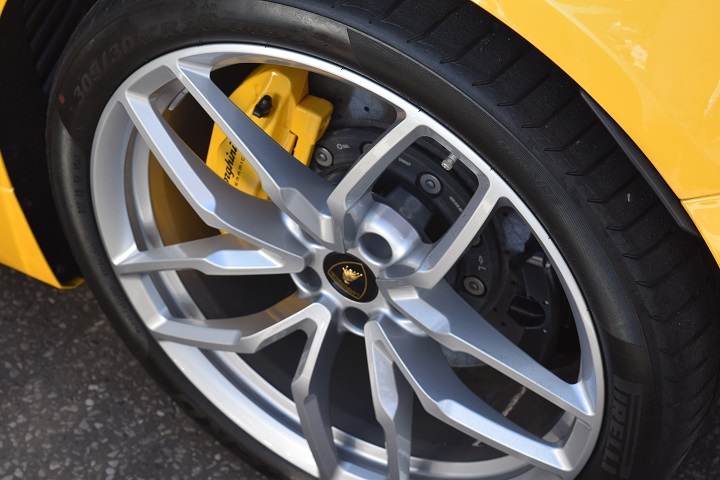The Tyre Pressure Monitoring System (TPMS) is a technology designed to monitor the air pressure in your vehicle’s tires. It’s an important safety feature that can alert you when your tires are underinflated, which can lead to decreased fuel efficiency, increased tire wear, and even unsafe driving conditions. In this blog post, we’ll explore what TPMS is, how it works, and why it’s essential for maintaining the health and safety of your vehicle.
Table of Contents
1. What is TPMS?
The TPMS is a system that monitors the air pressure in each of your vehicle’s tires. It uses sensors installed in the tires to collect real-time data on the air pressure, which is then transmitted to the vehicle’s onboard computer. The computer can then alert the driver if the pressure drops below a certain threshold, typically set by the vehicle’s manufacturer.
There are two types of Tyre Pressure Monitoring System (TPMS) systems: direct and indirect. Direct TPMS uses sensors located in the tire to measure the air pressure, while indirect TPMS uses the vehicle’s Anti-lock Braking System (ABS) to monitor the rotational speed of the tires, which can indicate when a tire is underinflated.
2. How does TPMS work?
Direct TPMS systems use sensors located in each tire that measure the air pressure and temperature. These sensors transmit the data to the vehicle’s onboard computer, which can display the information on the dashboard or alert the driver if the pressure drops below a certain threshold. Indirect TPMS systems use the ABS to monitor the rotational speed of the tires, which can indicate if a tire is underinflated.

3. Why is TPMS important?
TPMS is important for several reasons. Firstly, it can help prevent accidents by alerting the driver if the tire pressure drops to an unsafe level. Underinflated tires can cause a vehicle to handle poorly, especially in wet or slippery conditions, which can lead to accidents.
Secondly, TPMS can help prolong the life of your tires by ensuring they are inflated to the correct pressure, which can prevent excessive wear and tear. Finally, TPMS can help improve fuel efficiency by ensuring your tires are properly inflated, which can reduce the amount of fuel your vehicle uses.
4. Conclusion
In conclusion, the Tyre Pressure Monitoring System (TPMS) is an essential safety feature for any vehicle. It can help prevent accidents, prolong the life of your tires, and improve fuel efficiency. If your vehicle is not equipped with a TPMS system, you may want to consider having one installed for added peace of mind and safety. Remember to check your tire pressure regularly, and if you receive an alert from your TPMS system, take immediate action to correct the problem.
Tech India Today
Related posts
Recent Posts
- How Important is Competitor Analysis? November 13, 2023
- Securing the Internet of Things: A Growing Concern October 2, 2023
- When DevSecOps Shines: Reinventing Software Development May 17, 2023
- Implementing Infrastructure As Code (IaC) With DevOps April 21, 2023
- What Can You Gain By Choosing a Reputable HVAC Software Solution? March 19, 2023
Categories
- Artificial Intelligence (AI) (18)
- Augmented Reality (AR) (5)
- Automotive (7)
- Blockchain (2)
- Business (45)
- Career (4)
- Cloud Computing (6)
- Computers (4)
- Content Management System (1)
- Cryptocurrency (1)
- Cybersecurity (7)
- Data Science (1)
- Digital Marketing (32)
- E-commerce (1)
- Education (6)
- Electronics & Hardware (10)
- Entertainment (5)
- Finance (9)
- Gadgets (23)
- Games (3)
- HTTP (3)
- Industry (2)
- Infographics (3)
- Internet (138)
- Internet of Things (IoT) (22)
- Job (3)
- Lifestyle (2)
- Machine Learning (7)
- Marketing (45)
- Marketplace (2)
- Mobile Apps (20)
- Natural Language Processing (2)
- Network (15)
- News & Trends (15)
- Operating System (OS) (6)
- Programming (10)
- Robotic Process Automation (RPA) (13)
- Security (19)
- SEO (24)
- Social Media (29)
- Software (35)
- Tech India Today (1)
- Technology (166)
- Virtual Reality (VR) (2)
- Web Apps (12)
- WordPress (1)
- Workflow (2)
- Workforce (2)
- Workplace (1)
- Workspace (1)


